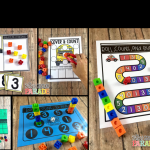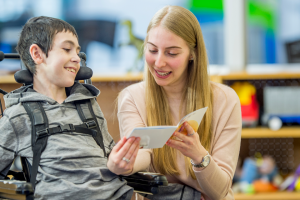
Standardized testing has become entrenched in the U.S. education system for accountability purposes. However, reliance on standardized tests to gauge school and student performance remains controversial given potential negative impacts. Evaluating testing effects provides insight into appropriate assessment use. While tests offer data, overemphasis can undermine learning goals. Balance is key to harness information without marginalization.
Data-Driven Decision-Making
Well-designed standardized tests provide valuable student achievement data to inform instruction and policy. Annual state-level exams in math, reading, writing, and science supply comparative progress metrics. Results identify proficiency gaps between schools or subgroups, allowing resource targeting. Many districts administer interim tests to gauge growth and predict outcomes as well. Data-driven changes can boost performance.
Opportunity Inequities
However, an over reliance on test scores for high-stakes decisions can reinforce inequities. Low scores often trigger penalization or even school closures in under-resourced areas instead of providing additional support. Struggling students face retention or restrictive placements based on exams, despite extenuating circumstances. Tests often punish rather than help. As Martin Luther King Jr. stated, “Injustice anywhere is a threat to justice everywhere.” Inequitable uses of testing data perpetuate injustice.
Narrowed Focus
In response to testing pressures, many schools narrow curriculum and instruction to tested topics. Social studies, science, arts, technology, and electives get minimized to maximize time on math, reading, and writing. Teaching to the test rather than broader skills presents learning opportunity costs. Students miss out on well-rounded educations.
Differentiated Assessment Methods
High-stakes standardized tests also provide limited perspectives on student strengths since gauging a narrow set of skills on a single day. More dynamic assessment methods like portfolios, projects, presentations, and design scenarios better showcase capabilities. Evaluating growth and higher-order skills requires varied measures. Sole reliance on standardized testing provides an incomplete picture.
Student Anxiety
Additionally, the extreme focus on standardized testing induces student anxiety across ages and demographics. Younger students show heightened stress hormones, behavior issues, and somatic complaints. High-schoolers report chronic nervousness and lost sleep. Especially for disadvantaged students, pressure can become traumatizing. Testing practices should avoid harm.
In Summary
Overall, standardized testing offers useful data but overemphasis on scores can have detrimental educational and equity consequences. Keeping testing in perspective is vital. Exams should inform teaching, not eclipse learning. Multiple measures should determine opportunities. Fair, thoughtful policies can leverage testing insights while still fostering childhood well-being and personalized instruction. With balance, data can open doors instead of closing them. Assessments should unlock potential, not constrain it.
















